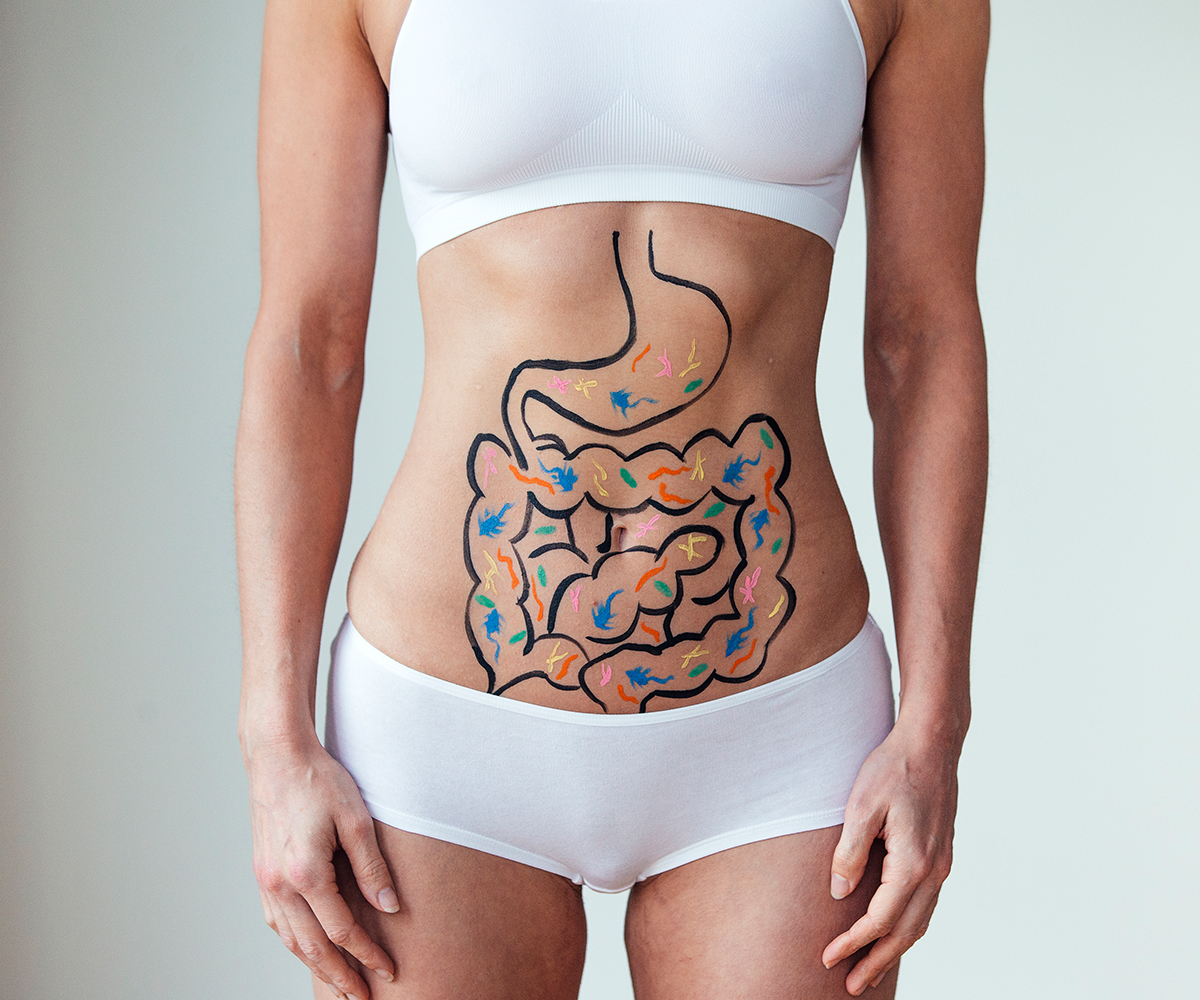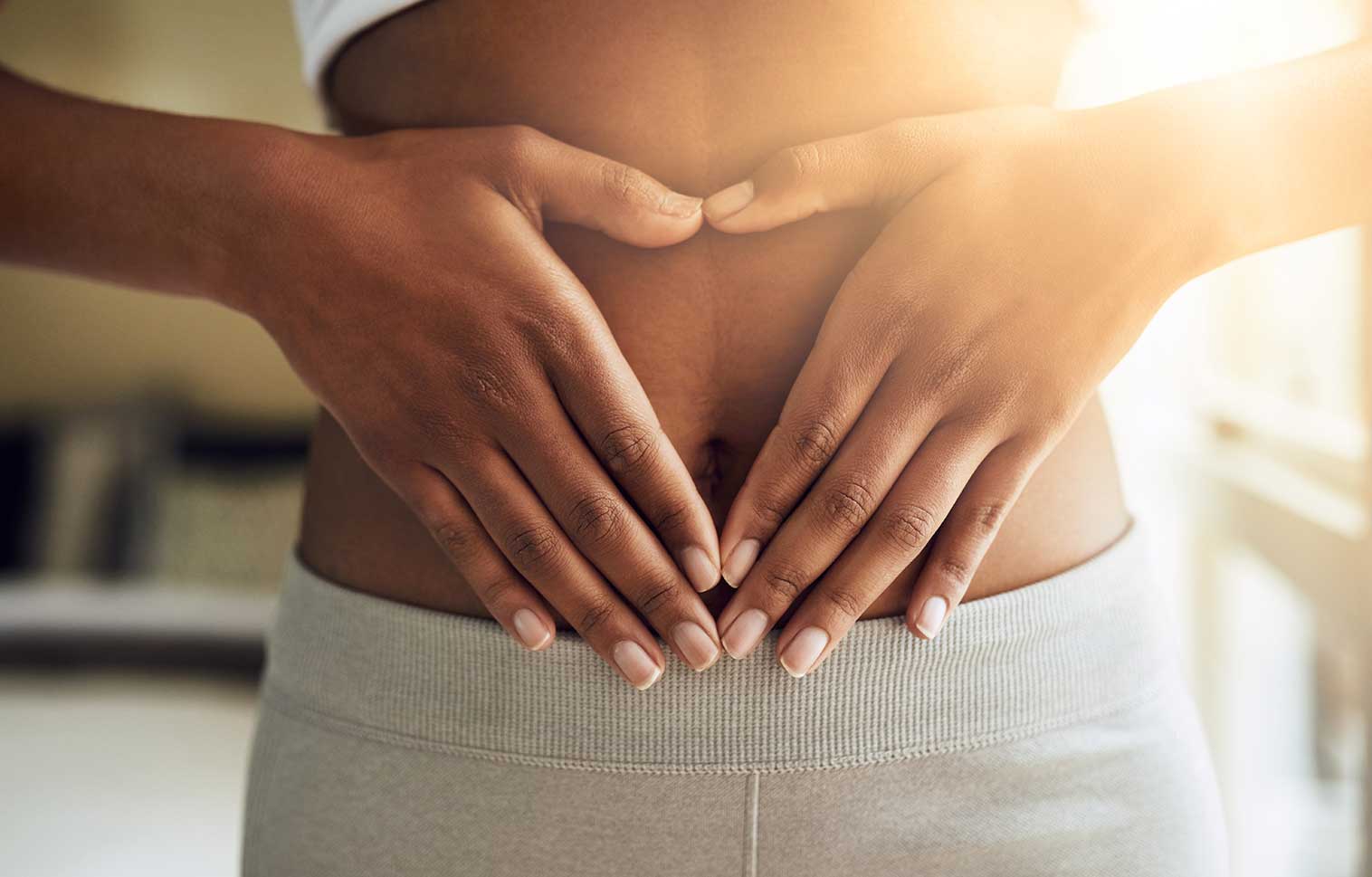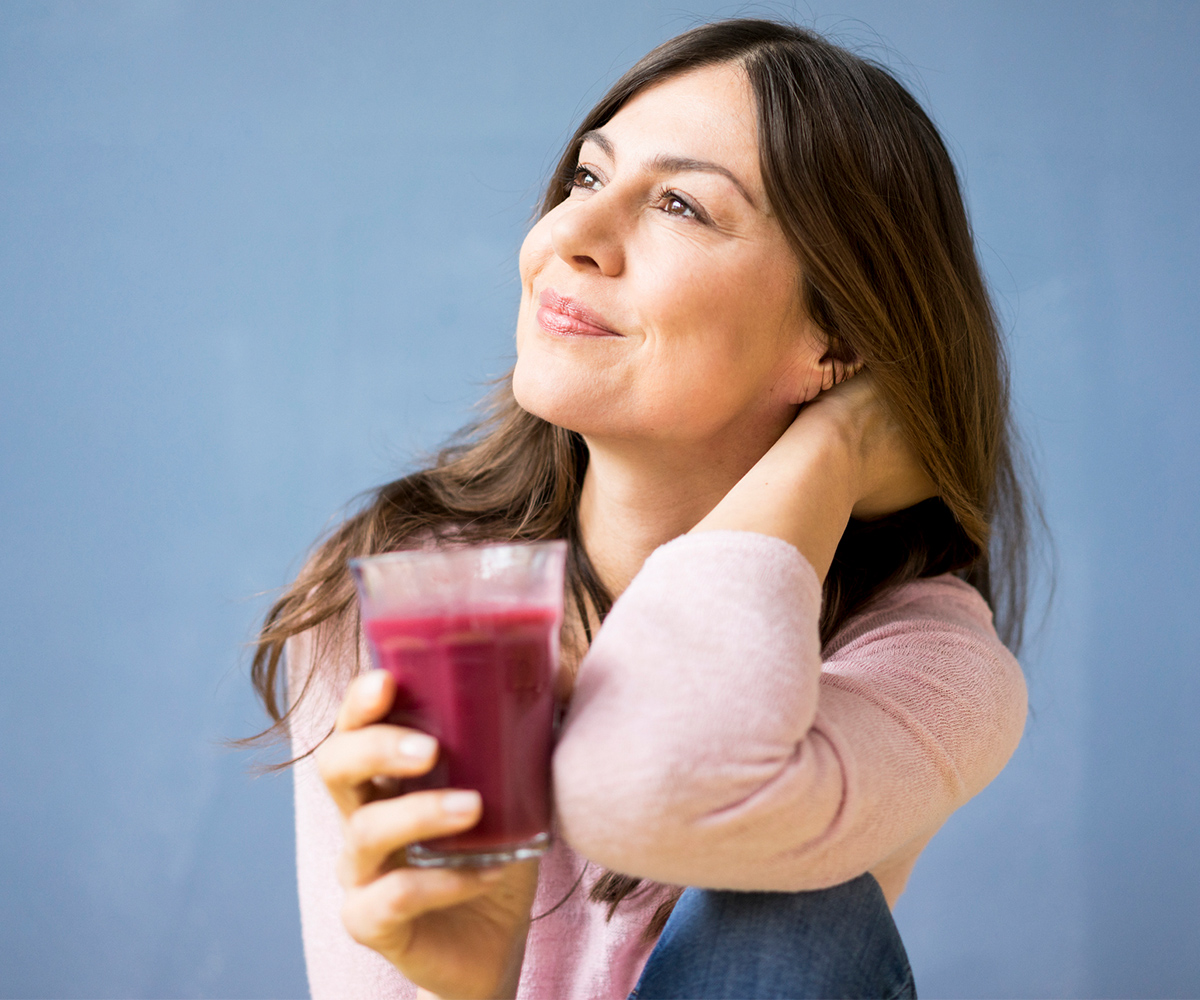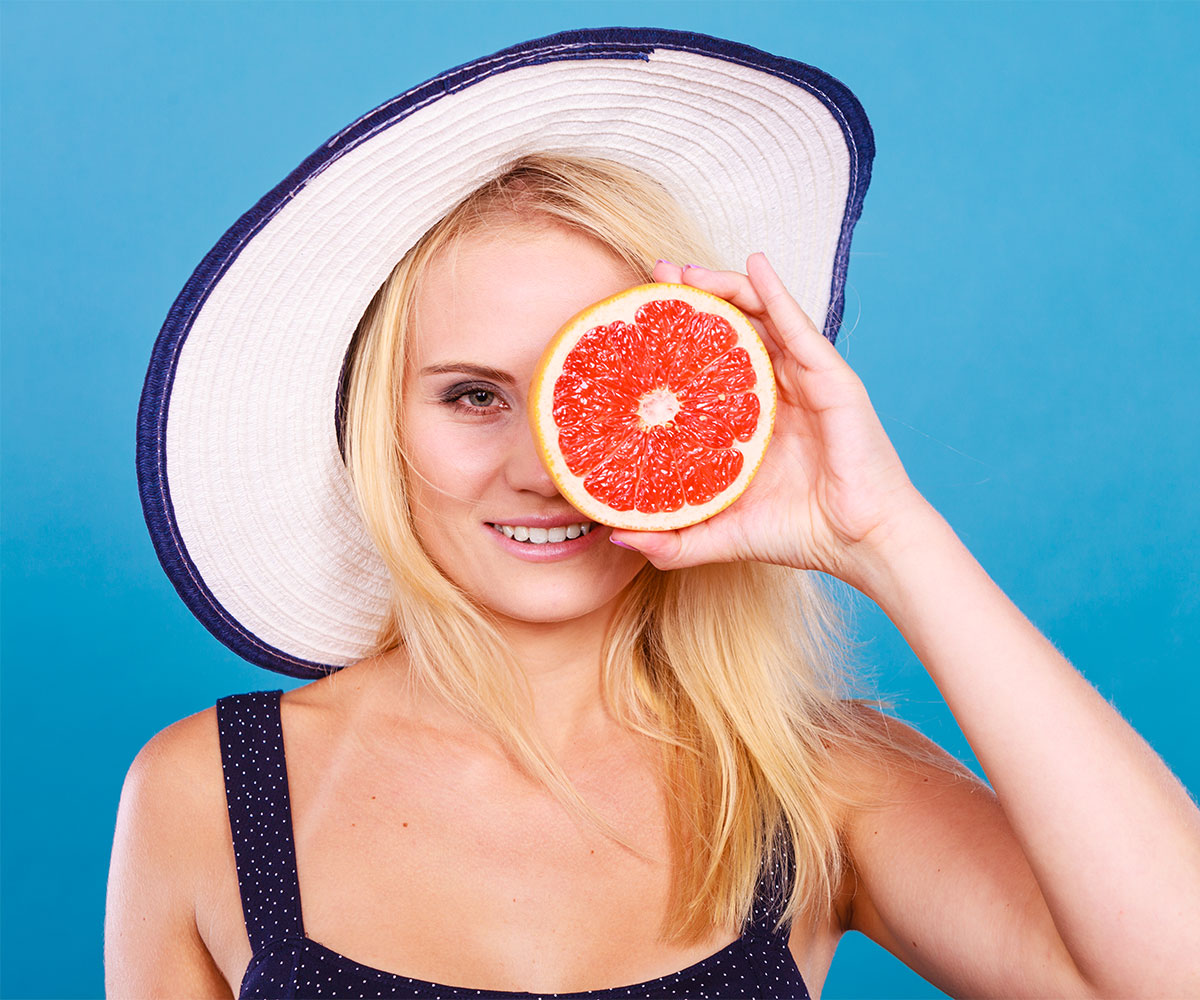Hippocrates declared that “all disease begins in the gut” more than 2000 years ago. Now the science is catching up and we’re all enthralled.
First we devoured Gut by Giulia Enders, extolling the virtues of grains – long reviled by Atkins and Paleo extremists.
Then we joined Dr Michael Mosley on an enlightening journey in one end and out the other, in The Clever Guts Diet.
Now, Melbourne Museum has a new exhibition called Gut Feelings. It’s curated by Dr Johanna Simkin, who looks at zeitgeisty moments in medicine.
“The research has exploded into every direction,” she says.
“We knew there were microbes in and on the body but in the last five years, due to new technology, we can pick apart which microbes are where and what signalling they are doing in the body. What’s amazing is the really far-reaching impact these little guys have. They make up 1-2kg of us and they have such a huge impact on our entire bodies.”

One of the turning points, says Dr Simkin, was “brave mice” research.
Scientists found that microbe-free mice reacted more strongly to stress. They also became brave when they’d been given a poo transplant (and therefore microbes) from brave mice.
“It’s a completely new understanding of how the body works,” she says.
To recap, our microbiota is the estimated 100 trillion microorganisms living in our guts, including bacteria, viruses, fungi and protozoa.
Our microbiome is all the genes from the microbiota – it’s a virtual organ.
According to Deakin University’s Food and Mood Centre, these bugs play key roles in digesting our food, absorbing nutrients and influencing our weight, immunity, mood and brain functions.
Between 2013 and 2017, The British Medical Journal notes, there was an astonishing 12,700 studies on the microbiome.
The more we study the gut, the more we realise we have to learn. And not just about gut problems.
For Associate Professor Andrew Holmes from The University of Sydney, the real story is that the gut is “profoundly connected” to regulation of the whole body system.
He says our microbiome could play a part in treatment of chronic conditions like allergies, diabetes, depression and anxiety.
“The gut does not directly cause problems in systemic immune function, mental health or metabolism, but it does influence how those parts of the body work and it does explain why ‘one size fits all’ treatments don’t work. Food/diet is increasingly being recognised as a useful adjunct (NOT replacement) to other types of medical intervention.”

As someone who’s lived with irritable bowel syndrome (IBS) for 25 years, the new appreciation of our gut is validating.
What started with mild afternoon “bubble belly” spiralled into bouts of severe bloating, sickening nausea, crippling pain and sometimes migraines. I once spotted the line “Fat by 4pm?” on a magazine cover and laughed out loud, wondering how many other women felt the same way.
One in seven people are affected by IBS and it is more common in women than men.
Gastroenterologist Professor Terry Bolin says, “In IBS there’s a disturbance of the nervous system which supplies the cardiovascular system and gut. If you get cold hands and feet you may also have gut problems.” This last point is news to me, though it does ring true.
The new respect for our guts has not gone unnoticed by Professor Bolin and his colleagues at The Gut Foundation in Sydney.
Although we have “gut feelings” and make “gut-wrenching decisions”, nitty-gritty gut talk was taboo until very recently.
“When we established The Gut Foundation in 1983, everybody said, ‘You can’t call it that!’ Now we recognise the gut is the engine room.”
The shift has certainly made it easier to talk about IBS, because there’s now a positive spin. Sipping kombucha, making your own kimchi and working towards a healthier microbiome is marketed as aspirational.
Even poo transplants (that of a healthy donor is transferred into another to treat certain illnesses) evokes heroics with its “super donors”.
Long before hipster fermented foods lined supermarket fridges, my GP suggested I cut out gluten and dairy. I thought I’d starve without toast and yoghurt but the difference was staggering.
I was eating more vegetables too, so I kept it up and life went on. I’ve always loved good food; weekends were for ticking off delicious eateries and visiting farmers markets. I’ve collected (and use) shelves of cookbooks over the years and they all spark joy. But the flare-ups mounted.
Then there was the suspected food poisoning. The California rollthat put me on an IV drip. The fruits de mer that made me faint in a French town square. And the tasting menu by a famous chef that saw me wind up in a London emergency ward.
To make matters worse I ate out frequently for work, always torn between wanting to let go and wanting to stay well. And yes, I was self-conscious. Friends said I was”painful” or “anal” about food. Apt.
Once I changed tack and saw a nutritionist, posting my poo to the US. I got a positive result for one particular bug and bought supplements to “support” my gut. It was an expensive path but seemed holistic.
However, I abandoned it when a doctor dismissed the report as quackery. After that I kept it simple: chamomile tea, probiotics, anti-spasmodics (like Buscopan) and digestive enzymes. None really helped so I developed my own protocol: De-Gas, long walks and patience. Plus Nurofen and bed for migraine; or acupuncture to “reset” after frequent bouts.

Over the years, to several doctors, I wondered whether taking antibiotics had sensitised my gut? Possibly. What about gastro? For a few weeks. Food poisoning? For a few months. Was abdominal separation post childbirth exacerbating things? Could be – you need to exercise harder to tone those muscles.
We’ll know more in the next two years, according to Professor Bolin, who likens the imminent findings as Mount Everest, with us standing at Base Camp, looking up.
For now, he says, “We know that tummy bugs can cause long-term changes in the workings of the gut, even after infection has cleared. Infection like Bali belly accounts for 25 per cent of IBS sufferers. Essentially you’ve altered the nervous and muscular system in the gut.”
Eventually one morning I woke up and didn’t know what to eat any more. I went to a new doctor and burst into tears. Blood tests revealed I had coeliac antibodies and she told me to strictly avoid gluten.
I didn’t have the coeliac gene though, so the gastroenterologist put me on The Low FODMAP Diet and scheduled a colonoscopy (a camera is inserted from behind to investigate for cancer and polyps) and gastroscopy (a camera is threaded down the throat to look for polyps, reflux and ulcers).

FODMAPs are poorly digested carbohydrates: Fermentable Oligosaccharides, Disaccharides, Monosaccharides and Polyols.
I had to cut back on avocados, garlic, broccoli, milk chocolate and more before reintroducing them one by one. Again, I thought I would starve and again the difference was staggering.
I learned that apples, onions and dairy are big triggers for me. I went through with the procedure anyway and to my relief, got the all-clear. “Just IBS.”
I’m told IBS doesn’t harm the gut, but I do wonder whether mine is “healthy” so I ask Professor Holmes how we tell.
“The simplest test of a healthy gut is if you feel healthy,” he says.
And to keep our guts in good shape, all our experts agreed: eat a balanced diet with plenty of fibre. “The bottom line is that we support gut function best by eating in a way that balances our microbes’ needs (fibre) with ours (macro and micro nutrients).”
Dr Johanna Simkin’s Gut truths
Carbs keep your weight stable
“Fruit, vegetables and legumes contain resistant starch, which your microbes love munching on. They use them to create short-chain fatty acids which send signals around your body. In fact, a healthy microbiome has a huge effect on maintaining a healthy weight.”
The perfect diet doesn’t exist
“Vegetarians and vegans have different microbes to omnivores. But the jury is still out on the ultimate diet. The ideal microbe mix and therefore the ideal diet, may be different for us all.”
Germs are good for all of us
“Children who have a pet before they’re four years old often grow up to have a stronger, more robust microbiome. For adults, soending time in green spaces is good for your microbiome, too.”
We’re re-thinking Leaky Gut Syndrome
“Leaky Gut Syndrome is when a leaky gut (damage allowing toxins through the gut wall into the bloodstream) causes symptoms such as mood changes, brain fog and fatigue. Many dismissed it but peer reviewed articles now confirm it is real.”
It’s not all about what you eat
“Huge hormonal shifts like pregnancy and menopause can change microbes on gentials and in your gut. One of the more curious trends I found was people trying to make the own vagina yoghurt.”
What a dietitian wants you to do for your gut

“Good gut health doesn’t have to be complicated or costly,” says dietitian Lynsey Bramley. She recommends the following:
Diversify your diet with fibre. Aim for 20-30 different plant-based foods per week with fruit, veg, wholegrains, nuts, seeds and legumes.
Limit processed foods that can promote bad gut bacteria. Try it with snacks first – go for fresh fruit or mixed nuts and seeds.
Try fermented foods such as kefir (fermented milk drink), kimchi (fermented cabbage) or natto (fermented bean), or good old yoghurt.
Chew your food. Chewing each mouthful 10-20 times saves a lot of work further down the GI tract. It’s meditative too.
Move your body. It’s even better to use exercise to de-stress. The link between brain and gut is well known and can influence your microbial diversity.
 Getty Images
Getty Images



